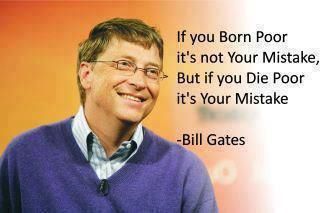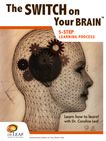LEGAL/REGULATORY AUGUST 20, 2012, 5:13 PM
Examining the Ponzi Scheme Through the Mind of the Con Artist
BY DIANA B. HENRIQUES
In her new book, Tamar Frankel, a legal scholar, explores the psychology of the financial criminals and what makes them tick.
Maybe “Ponzi scheme” should have its own spot in the Dewey Decimal System. Along with biographies of the schemers, a growing stack of scholarly references, legal tomes and articles aims to collect knowledge about this age-old crime.
But the latest entry in the category, “The Ponzi Scheme Puzzle: A History and Analysis of Con Artists and Victims” by Tamar Frankel, takes a different approach. While Professor Frankel is a legal scholar who has been on the faculty of the Boston University Law School since 1968, her book explores the psychology of the financial criminals and what makes them tick. She was inspired by a colleague who referred to them as “those mimics of trustworthiness: con artists.”
She spent more than a decade researching the book, analyzing more than a hundred Ponzi schemes. Among them: the Caritas scandal in Romania, an early 1990s fraud whose victims saw the mastermind as a saint in Robin Hood guise; the currency fraud run by J. David Dominelli, which collapsed in the mid-1980s and stung a host of San Diego’s elite; and the Madoff scandal, history’s largest Ponzi scheme, with paper losses of $64.8 billion and thousands of victims around the world.
Professor Frankel talked about the mind-set of the con artist, as well as the role that victims and society play. Her conclusions will not comfort Ponzi victims; she faults them for their gullibility and failing to “do their homework.” She finds, too, that society has a profound ambivalence toward con artists despite the vicious nature of their crimes — which, she notes, on rare occasions have even included murder.
Q. Do you now feel that you better understand Ponzi schemes and the “mimics” of honesty who run them?
A. Yes. Especially, I understand better the impact of culture — a culture of risk-taking, the hope of making money, an insatiable appetite for more. These are all part of the culture in which Ponzi schemes arise and flourish.
Q. And yet, as you know, those traits are also part of the culture in which capitalism thrives and economies flourish. If no one trusted anyone, modern commerce — indeed, modern life — would be impossible. So where should we draw the line between trust and suspicion?
A. It’s not so much a continuum as it is the proverbial slippery slope. It’s very easy to slip down a slippery slope — and very hard to climb back up again. When people start doing one little wrong, it gets a little easier to do one more wrong.
Q. Will people buy that? That one step off the straight and narrow leads to corruption?
A. If you look at the history of successful human societies, two things are clear. One, you must have trust. Without it, society cannot succeed. At the same time, you must also be trustworthy.
Q. But it’s not so simple, is it? Some victims of Mr. Madoff feel they justifiably placed their trust in a respected market veteran who knew far more about markets than they did. If I’m asked to vet a Madoff story, I know what to look for. But if my car mechanic tells me I need a new frambulator, I don’t know enough about cars to assess his honesty; I’ll have to trust him. So where is the line between justified trust and unreasonable gullibility? And won’t it be different for different people?
A. Gullibility is the tendency to believe without reasonable evidence. Every culture draws a line between trust and gullibility. And in the financial arena, the line between trust and gullibility may have to be more tightly drawn. For example, as I note in my book, many con artists make it seem that they are limiting access to their investments, making them available only to a select few. Now, rationally, why would a money manager do that? Look around you and you see hedge funds, mutual funds, private equity funds and advisers all salivating for more clients. Yet, there are those who believe that the more unique and hard to get an investment is, the more valuable it is. That’s gullibility — because it is not rational to believe that.
Q. Of course, Madoff had a seemingly plausible explanation for that: He managed money only as a sideline and he didn’t want word to get around because he’d have to turn people away and that would cause hard feelings.
A. And Madoff was a well-known broker — in other words, it was his business. He was an expert trader. He said, “I have a secret way of doing something,” and it may have seemed plausible that he did. You’re quite right that he’s different.
Q. Nor did Madoff promise sky-high returns — he just offered steady consistency. A fraud analyst named Pat Huddleston says of successful Ponzi schemers: “If it sounds too good to be true, you’re dealing with an amateur.” Don’t you think future Ponzi schemers will take a page from Madoff’s playbook and keep their returns relatively modest to avoid raising red flags?
A. I doubt it. People certainly are more concerned about risk than they were before the financial crisis. But con artists do not adjust their stories to the current culture and public feeling but rather focus on their potential targeted audiences. For example, a con artist who operated a charitable organization appealed to similar organizations with a story that an anonymous donor would match their investments. This story was convincing because the managers of charitable institutions have donors who seek to remain anonymous.
Q. Some critics may argue that your analysis of people who fall prey to Ponzi schemes skirts pretty close to “blaming the victim.” Do you think Ponzi victims are responsible for their own fate?
A. That’s a very difficult issue. “Blame” means an “assignment of responsibility for a fault or a wrong or an error.” I think we would agree that a person who suffers from heart disease after years of overeating and smoking may bear some responsibility for his or her illness. I empathize with victims and I feel for them, even as I assign some responsibility to them.
Diana B. Henriques is author of “The Wizard of Lies: Bernie Madoff and the Death of Trust.”
A version of this article appeared in print on 08/21/2012, on page B4 of the NewYork edition with the headline: Examining the Ponzi Scheme Through the Mind of the Con Artist



 https://www.facebook.com/drleaf?ref=ts
https://www.facebook.com/drleaf?ref=ts











































































